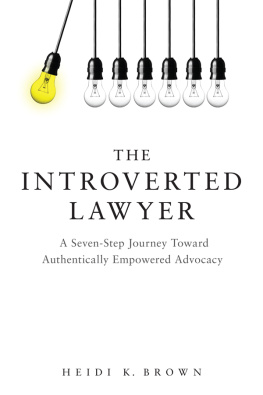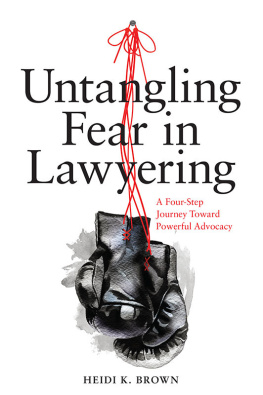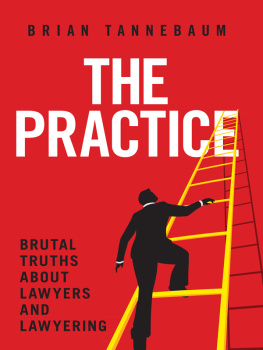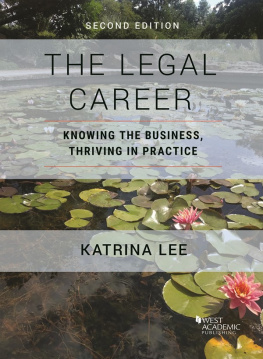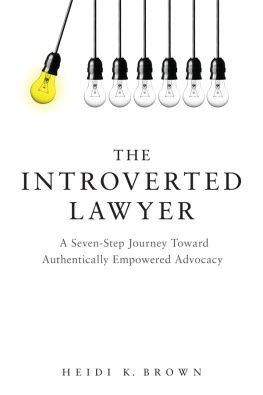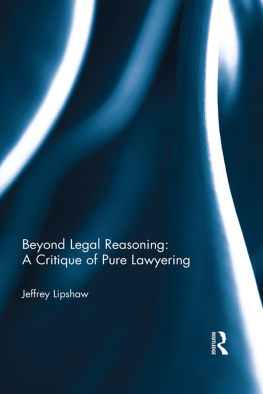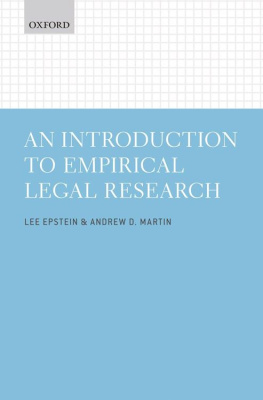Preface
The introverted lawyer: an oxymoron? The American typecast of the effective lawyer conjures images of an extroverted, confident, prolix, podium-pounding orator. Hollywood stars like Ryan Gosling, Matthew McConaughey, Reese Witherspoon, and George Clooney portray gregarious exemplars of the profession on the big screen. Art reflects life. A stereotype bias in law school and legal practice favors the talkative extrovert. While naturally loquacious professors, students, lawyers, and judges thrive in a world dominated by the Socratic question-and-answer method and rapid-fire oral discourse, quiet thinkers and writers can be sidelined. Introverts are frequently overlooked and underestimated by organizations and colleagues who buy into the idea that talking reigns supreme. Introverted or otherwise interpersonally reserved (perhaps shy or socially anxious) law students and lawyers often struggle to find their place in the legal arena. Research indicates, however, that they bring impactful gifts to the profession, such as active listening, empathy, deliberate thinking, and insightful writing. As legal education and law practice adjust to changing law school enrollment trends, and as academic institutions and law firms reevaluate business models, the legal community is primed to make room for subtler voices.
The impetus for this book is both personal and professional. I was an introverted law student, and I remain an introverted lawyer and law professor today. I feared the Socratic Method in law school, fumbled my 1L (first-year) oral argument, dreaded most deposition and court appearances in the first 15 years of my litigation career, fretted about commanding a classroom in my first year of teaching law, and rarely spoke in contentious faculty meetings. Much of the time, I felt like a fraud, faking extroversion to strive and achieve. Yet, from the beginning of my legal career, my brain happily buzzed with complex legal issues, theories, and strategies. When I sat down to write lengthy briefs as a junior associate at the law firm, my thoughts flowed and I communicated legal concepts in a persuasive manner to advocate passionately for my clients. I read, listened, contemplated, analyzed, and wrote. Over the past two decades, I have composed reams of briefs, and penned law review articles and books to help novice lawyers litigate. However, in frequent flashes of self-doubt, I continued to worry: was there no true place for me in the law because I flinched in the throes of a Socratic grilling by a professor, colleague, opposing counsel, or judge?
Well-meaning, extroverted mentors throughout my legal career have urged: Just speak up! Get your nose out of that book and spout an opinion! Grow a thicker skin! Just do it! As if I could just tie on a pair of Nikes and bungee-jump my way into the Socratic bonanza with zest. I thought there was something wrong with me. There wasnt. I am an introverted lawyer and law professor, and I am good at my job. I just do it quietly. And deeply.
In many law school and law office communities, students and lawyers who are introverted, shy, or socially anxiousthree distinct categories, with important differences explored in Some professors argue that cold-callingand the attendant heightened level of anxietyis the best way to ensure students are prepared for class. Meanwhile, ever since I outed myself in the legal academy as an introverted and formerly shy lawyer who overcame an extreme case of public speaking anxiety, smart but reticent students email me, confiding internal conflict; they are petrified about oral argument assignments and cold-calling in Socratic Methodrun classes, yet they yearn to share their budding ideas about the law. To not miss out on the bounty of these thinkers, we need to bridge this divide and help introverted, shy, and socially anxious law students and lawyers find their authentic lawyer voices.
As a card-carrying introvert and someone who struggled with severe anxiety toward public speaking for too many years in the legal contextwhere extemporaneous discourse is laudedI fell victim to the pressure to be something I was not. Fake it till you make it! many extroverted coworkers, friends, and acquaintances exclaim, clinking glasses and high-fiving. That approach does not work for introverts, and it is not a realistic long-term solution for those who suffer from anxiety toward interpersonal interaction in the legal arena. By pushing introverted law students and lawyers to feign extroversion, we do many intelligent and hard-working individualsand the legal professiona serious disservice.
Through extensive psychology-based research and self-study, digging into my personal history to understand the roots of my preference for quiet and my instinctive resistance toward instantaneous legal discourse before my thoughts are fully shaped, I now embrace introversion as an asset in teaching and litigating. Do I often still blush and break out in blotchy hives when I voice legal opinions and teach law? Yes, routinely. But I convey my passion for and commitment to the might of the legal profession by finally being genuine: analyzing legal concepts quietly, appropriating the time I need to reflect before speaking, and communicating when ready, using the power of the written word to amplify my voice. A voice does not need to boom to have an impact. Nor do the words or delivery need to be perfect. As activist Maggie Kuhn once said, Speak your mindeven if your voice shakes.
This book champions the power of introversion within the legal profession, urging the legal academy and law practice to make room for the quiet thinkers and writers. Through this book, I endeavor to instigate my fellow introverts to seize your quiet space. This manifesto is for the many law students and new lawyers who experience overwhelming anxiety in a Socratic dialogue, who feel they have to force an extrovert persona, and who ride tsunamis of self-doubt over their chosen profession. Introversion in the law profession is a gift.
The journey of this book has two parts. The first half: (1) explains the differences among introversion, shyness, and social anxiety and how each can manifest in the legal context, (2) explores the impact on quiet individuals of the push toward extroversion in law school and law practice, and (3) highlights greatly valued proficiencies (i.e., active listening, deep thinking, sensitivity, empathy, thoughtful writing, etc.) that introverts (and shy or socially anxious individuals) can offer to the legal profession, by nurturing instead of repressing innate strengths. As Voltaire said in Candide , Il faut cultiver notre jardin: We must cultivate our garden, or We need to work our fields. While literati interpret this line multiple ways (some of which imply self-absorption to the exclusion of otherswhich is not my aspiration or exhortation), I instead translate it as a message of emancipation. No longer bound by the expectation to don a fake extrovert mantle, and instead free to incubate germinating ideas about the law and nourish alternative problem-solving techniques, introverts can transform our profession.
Of course, in numerous circumstances, lawyers must be equipped to interact interpersonally with confidence and vigor. Thus, to help quiet law students and lawyers become authentically powerful advocates in both deed and word , the second half of this book outlines a practical seven-step process to help introverted, shy, and socially anxious individuals amplify their voices without compromising or suppressing their quiet strengthsrepackaging their perceived challenges into valuable lawyering competencies.
Stress is already a hallmark of legal education and practice. According to the Dave Nee Foundation, studies show that: (1) matriculating law students exhibit a collective psychological profile reflective of that of the general population, yet, after graduation, 20 to 40 percent of graduates indicate a psychological dysfunction, (2) 26 percent of attorneys who pursue counseling reference anxiety and depression, (3) 19 percent of lawyers struggle with statistically significant heightened depression levels, and (4) [l]awyers are 3.6 times more likely to suffer from depression than non-lawyers. With these statistics as a backdrop, the legal community owes our newest and next generations of lawyers our most profound commitment to seeking ways to reduce unnecessary stress. Introverted, shy, and socially anxious law students and lawyers, whom we goad into forced extroversionwithout honoring differences in the ways humans learn, process, and debate complex analytical conceptsare at risk of needless anxiety and depression.

